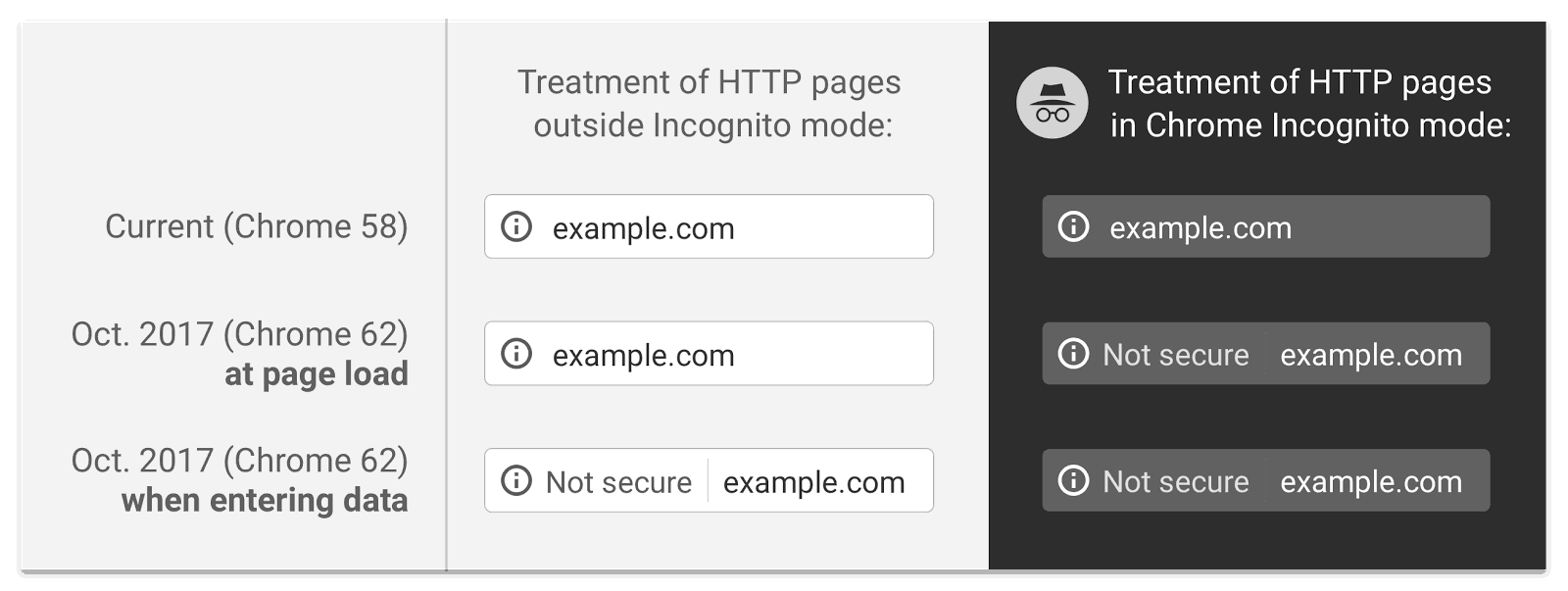A few weeks ago Google Search Console began sending out emails to website owners informing them of important security changes related to HTTP pages. The note began, “Starting October 2017, Chrome (version 62) will show a “NOT SECURE” warning when users enter text in a form on an HTTP page, and for all HTTP pages in Incognito mode.”

Chrome 61 is currently in Beta, with Chrome 62 slated to start rolling out next month. Chrome now marks HTTP pages as “Not secure” if they have password or credit card fields. In version 62, the browser will show the “Not secure” warning in two additional situations: when users enter data on an HTTP page, and on all HTTP pages visited in Incognito mode.
What is HTTPS and what does it mean for your business? Click To Tweet“Passwords and credit cards are not the only types of data that should be private. Any type of data that users type into websites should not be accessible to others on the network,” Emily Schechter, a member of the Chrome Security Team wrote on the Chromium blog.
Here’s how HTTP pages will be treated on Chrome Version 62:

To avoid having security issues show on your website, you’ll need to make the move to HTTPS.
How does one make a site secure?
The first step to making a site secure is to purchase and install an SSL Certificate. SSL Certificates are small data files that digitally bind a cryptographic key to a businesses’ details.
Many web hosting services offer SSL Certificates as part of their offerings. WordPress, which powers 27% of the sites on the Internet (including this one), has also emphasized the importance of HTTPs by only promoting hosting partners that provide an SSL certificate by default in their accounts.
What are the benefits of HTTPS?
Identity Verification
A certificate guarantees the information a browser is receiving came from the expected domain. It’s a guarantee that when a user sends sensitive data, it’s being sent to the right place, and not to a malicious third-party.
Data Integrity
With an SSL certificate installed, data cannot be modified or corrupted during transfer, intentionally or otherwise, without being detected.
Authentication
An SSL certificate confirms to your users that they are communicating with the intended website. It protects against man-in-the-middle attacks and builds user trust, which can translate into other business benefits.
Search Engine Optimization (SEO)
As far back as 2014, Google has indicated that HTTPS would be a ranking signal. That is, website’s that have HTTPS enabled would be given a higher priority in search than sites that don’t have it.
There are many factors that go into Google’s SEO algorithms. Most SEO professionals would advise that good, quality content is a stronger ranking signal than HTTPS.
What does this mean for your business?
Beyond the technical details, it’s important to remember that not having an SSL certificate on your site will lead to your users seeing security warnings when on your website. Imagine if a potential customer tries to fill out your contact form and they are greeted with “Not secure” warnings. This could deter them from interacting with your site and it may result in a loss of business.
Not sure about next steps? Contact us today, we’d be happy to help in securing your website.
